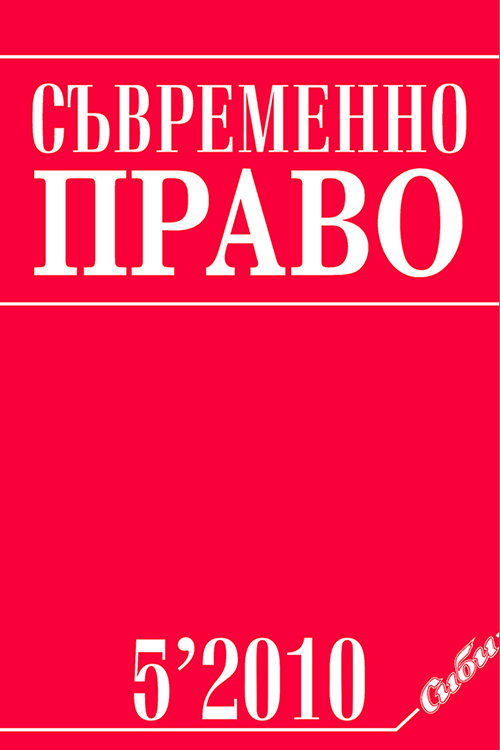Наказателноправната уредба на ЕС за противодействие на компютърната престъпност
EU Criminal Law Regulation of the Counteraction to Computer Crime
Author(s): Plamen PanayotovSubject(s): Law, Constitution, Jurisprudence, Criminal Law, EU-Legislation
Published by: Софийски университет »Св. Климент Охридски«
Summary/Abstract: The EU criminal law regulation of the counteraction to computer crime has been adopted with the ambition of further developing the achievements of international criminal law. What are mainly considered here are the achievements of the Council of Europe contained in the Convention on Cyber Crime. At the same time, the objective of the EU is to apply the said regulation in a way which is not in conflict with the principles of the Council of Europe’s Convention No. 108 dated 28 January 1981 for the Protection of Individuals with Regard to Automatic Processing of Personal Data, which has been ratified by all Member States. The EU fundamental regulatory instrument in the sphere of counteraction to computer crime is the Council Framework Decision 2005/222/JHA of 24 February 2005 on Attacks against Information Systems, which has been effective since 16 March 2005. An analysis has been conducted of the main particular features of the regime this Decision prescribes. As a result of the analysis, the study comes to certain conclusions and recommendations. First, it is necessary to overcome the terminological variations in the designation of various types of crime under consideration. The term “computer crime” should henceforth be used, as it is the legal term under Art. 83 of the Treaty on the Functioning of the EU. Second, the implementation and the application of the Framework Decision of the Member States will depend not only upon whether they have reproduced the definitions regarding the information systems (computer systems) and the computer data, but also upon the extent to which they abide by the logical relationships existing among the terms contained in the Decision. Third, support should be given to binding the efficiency of criminal prosecution with the limitation on the scope of criminalization in view of the cases of petty computer crime. However, the great gap in the regulation is the absence of explanation as to when a certain offence should be regarded as a petty one. This gap cannot be filled up by the European Commission’s incidental interpretation given in the 2008 Report dealing with the degree of implementation of the Framework Decision. Such an interpretation cannot clarify the regulatory content of the Decision, which has its binding effect upon the Member States. At the same time, according to the report of the EC, Bulgaria has already travelled all the way outlined thus far by the EU in regulating the attacks against the information systems in its national criminal law. The study underlines that the Bulgarian Criminal Code not only conforms to the basic standards of the EU in the field under consideration, but the regime under it is even more widely developed and is legally more consistent. That gives grounds to Bulgaria to show initiative and to be an active participant in the creation and adoption of the new criminal law regulation of the EU in the field of computer crime.
Journal: Съвременно право
- Issue Year: 2010
- Issue No: 5
- Page Range: 50-62
- Page Count: 13
- Language: Bulgarian
- Content File-PDF

